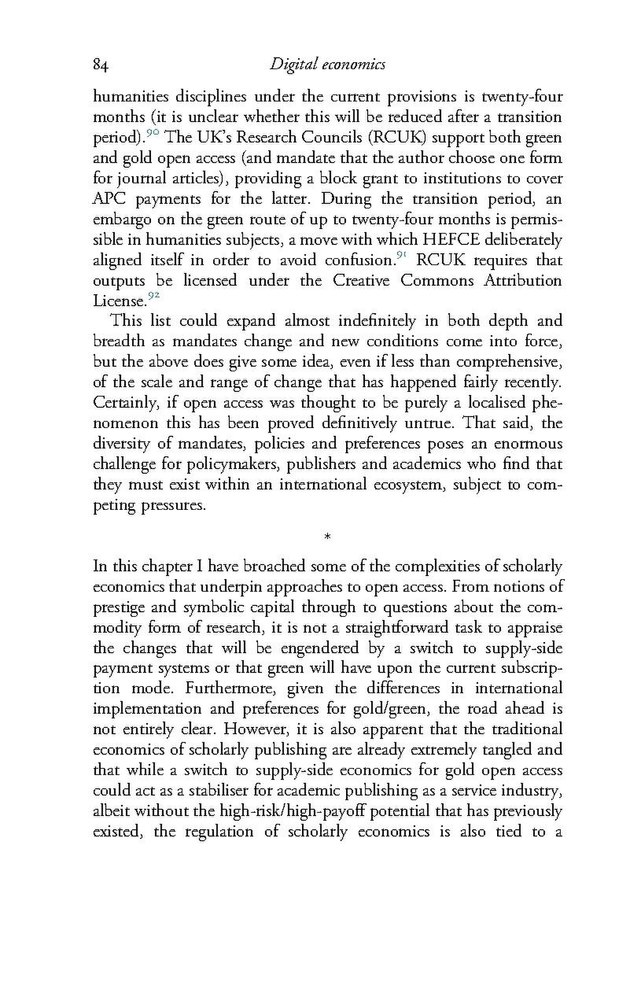humanities disciplines under the current provisions is twenty-four months (it is unclear whether this will be reduced after a transition period).90 The UK’s Research Councils (RCUK) support both green and gold open access (and mandate that the author choose one form for journal articles), providing a block grant to institutions to cover APC payments for the latter. During the transition period, an embargo on the green route of up to twenty-four months is permissible in humanities subjects, a move with which HEFCE deliberately aligned itself in order to avoid confusion.91 RCUK requires that outputs be licensed under the Creative Commons Attribution License.92
This list could expand almost indefinitely in both depth and breadth as mandates change and new conditions come into force, but the above does give some idea, even if less than comprehensive, of the scale and range of change that has happened fairly recently. Certainly, if open access was thought to be purely a localised phenomenon this has been proved definitively untrue. That said, the diversity of mandates, policies and preferences poses an enormous challenge for policymakers, publishers and academics who find that they must exist within an international ecosystem, subject to competing pressures.
*
In this chapter I have broached some of the complexities of scholarly economics that underpin approaches to open access. From notions of prestige and symbolic capital through to questions about the commodity form of research, it is not a straightforward task to appraise the changes that will be engendered by a switch to supply-side payment systems or that green will have upon the current subscription mode. Furthermore, given the differences in international implementation and preferences for gold/green, the road ahead is not entirely clear. However, it is also apparent that the traditional economics of scholarly publishing are already extremely tangled and that while a switch to supply-side economics for gold open access could act as a stabiliser for academic publishing as a service industry, albeit without the high-risk/high-payoff potential that has previously existed, the regulation of scholarly economics is also tied to a
